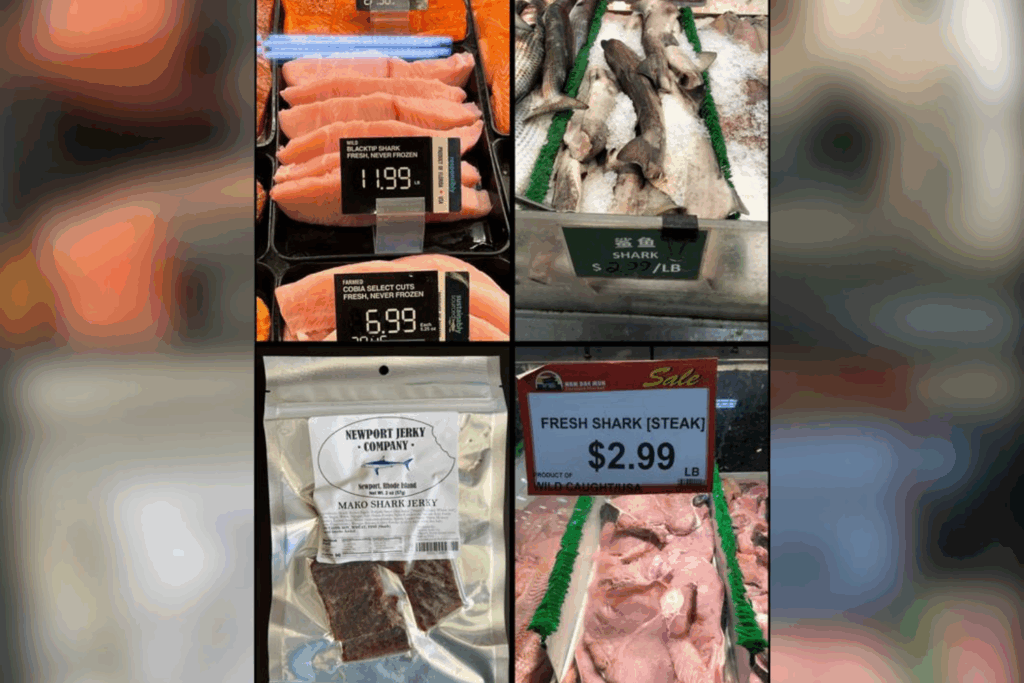
BREAKING: New research reveals that Americans are unknowingly purchasing meat from critically endangered shark species. The alarming findings, published by scientists from the University of North Carolina at Chapel Hill, highlight the urgent need for better labeling in grocery stores, seafood markets, and online platforms across the United States.
In a recent study conducted between 2021 and 2022, researchers analyzed 30 shark products acquired from Washington, D.C., North Carolina, Florida, and Georgia. Shockingly, nearly one-third of the samples were identified as coming from endangered or critically endangered species, including the great hammerhead, scalloped hammerhead, shortfin mako, and tope.
Savannah J. Ryburn, lead author of the study, stated, “Of the 29 samples, 93 percent were ambiguously labeled as ‘shark,’ and one of the two products labeled at the species level was mislabeled.” This mislabeling not only misleads consumers but also poses significant health risks, as many shark species contain high levels of mercury, methylmercury, and arsenic, which can have detrimental effects on human health.
The study’s findings reveal a troubling trend in the shark meat market. Prices for fresh shark meat varied greatly, with some selling for as low as $6.56 per kilogram, while shark jerky fetched over $200 per kilogram. Such disparities raise questions about the sources and safety of these products.
Shark populations have plummeted by more than 70 percent since the 1970s due to factors like overfishing, bycatch, climate change, and habitat destruction. According to the International Union for the Conservation of Nature (IUCN), over a third of shark species are currently threatened with extinction. While 74 shark species are protected under the Convention on International Trade in Endangered Species (CITES), enforcement remains a critical issue.
Ryburn emphasizes the need for stronger labeling regulations. “The legality of selling shark meat in the United States depends largely on where the shark was harvested and the species involved,” she explained. As large shark species reach markets as fillets, all distinguishing features are often removed, making species identification nearly impossible.
Moving forward, researchers call for mandatory species-level labeling to protect both consumers and vulnerable shark populations. “Sellers in the United States should be required to provide species-specific names,” Ryburn urged. “And when shark meat is not a food security necessity, consumers should avoid purchasing products that lack species-level labeling or traceable sourcing.”
As this situation develops, consumers are urged to be vigilant about their food choices. The implications for marine conservation and public health are profound, and immediate action is needed to address this critical issue.




